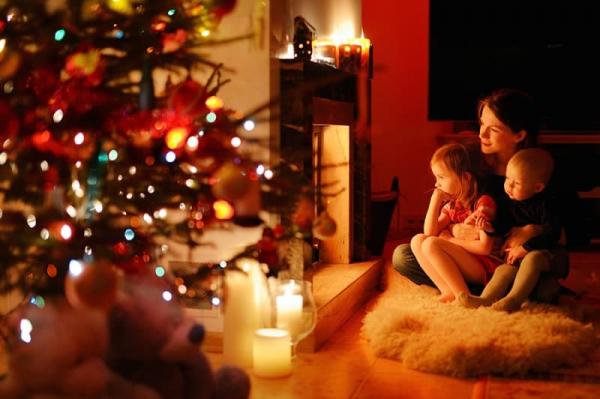
I admit, the holiday rituals in our home are hardly innovative. They're not particularly clever, but they are the old standbys that my kids depend upon and anticipate.
We're not like a friend of mine, whose annual Thanksgiving holidays include stuffing a raw turkey into a costume to parade around the house.
Our Christmas Eves may mirror yours; reading the Biblical account of Jesus' birth, setting out cookies and milk for Santa, opening one present (surprise, pajamas!), and reading the "'Twas the Night Before Christmas"� poem. As ordinary as our Christmas Eve traditions are, my kids embrace them.
Over the years, I've discovered that adding new traditions is OK - chucking old ones is not. The New Year's Day I made white chocolate fudge for the first time, my kids flipped out. "We've got to start making this every year!" they begged.
Yanking an old standby, however, throws everything into disarray. When my children were younger, I made the grave mistake of replacing their Christmas stockings - twice. The first time, I figured my décor had become too sophisticated for our overly-sweet country stockings, and I wanted something more streamlined. I attempted to sew a new set, and the results were a flop because I can't sew. The kids complained. They missed their old, familiar Christmas stockings.
Much of the fun of decorating for the holidays involves pulling items from bins and boxes amid cries of, "I remember this." Hugging a beloved stocking or snowman is a cherished routine. I've realized that for kids, Christmas decorations are familiar old friends that shouldn't be swapped out. Holiday décor plays a large part in family traditions.
Why are traditions - from your family's Christmas routines to monthly dinners with Grandma - such an important part of childhood?
Here are three reasons to consider. Traditions provide a sense of:
1. Belonging
Even the less-loved customs, like raking leaves in the fall, help kids develop their identities. "At our house we ..." is a phrase that reveals a sense of belonging which is a significant part of a person's well-being. Being able to identify with their families in positive ways gives kids an added measure of security.
2. Security
When a family event becomes a routine, your kids have a solid benchmark to anticipate and depend upon. Traditions help kids feel secure because they know what to expect. Many aspects of our kids' lives are precarious. Their futures hold lots of unknowns, but family traditions provide them with something certain to cling to.
3. Structure
It's well known that children crave structure. Even teens appreciate order and organization. Beloved family rituals and traditions create structure. They add harmony to your household, and help lay a solid foundation for your family.
It doesn't matter if your traditions are simple, elaborate or involve dressing up dead birds. The important aspects of traditions are consistency and engaging all of your family members. It's never too late to add interesting traditions. Quiz other parents to find out what they like to do, and how they celebrate the holidays. For family tradition ideas, read this article on building strong families through family traditions.

